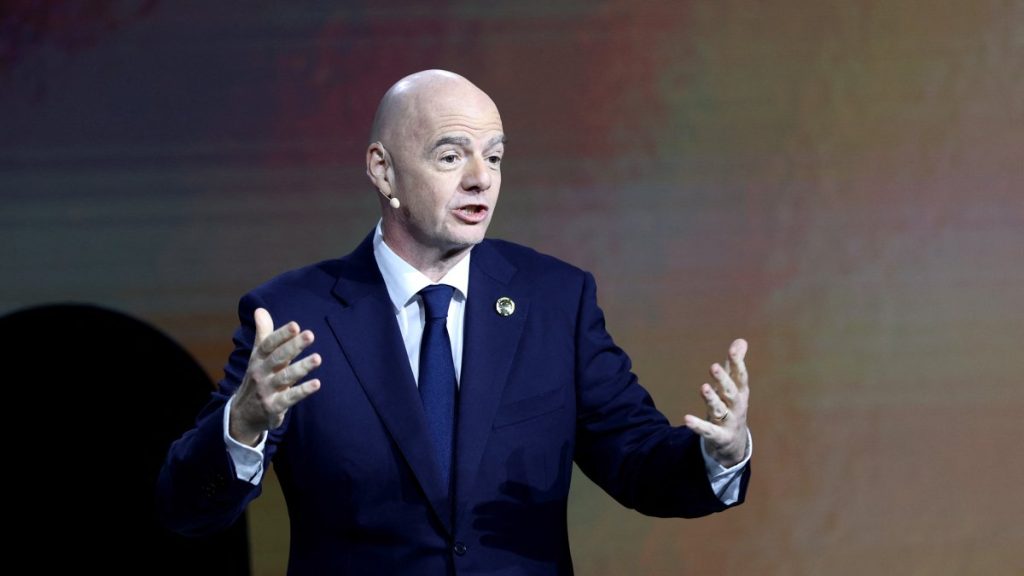FIFA will confirm the hosts of the 2030 and 2034 World Cups on Wednesday, with a joint bid led by Morocco, Spain and Portugal set to secure the 2030 tournament, while Saudi Arabia is poised to land 2034.
The selection, which will be determined by a virtual vote at the FIFA Congress, is all but decided.
Neither bid faces competition, making this one of the most straightforward decisions in FIFA’s recent history.
Centenary celebration
The 2030 World Cup will mark a century since the inaugural tournament in Uruguay, making it a unique and symbolic event.
This bid involves three continents – Europe, Africa, and South America – creating an unprecedented tournament structure.
Morocco, Spain, and Portugal are set to host, with Uruguay, Argentina, and Paraguay also included, each securing a match in their home countries.
FIFA confirmed over a year ago that Morocco, Spain, and Portugal were the sole contenders for 2030.
Other bids, like a joint British and Irish proposal, were dropped as the countries turned their focus to Euro 2028.
A potential bid from South Korea, China, Japan, and North Korea was also scrapped.
South America had initially launched a joint bid in 2019, arguing that the centenary World Cup should be held in the same continent where it all began.
In late 2022, UEFA introduced a bid involving Spain, Portugal, and war-torn Ukraine as a sign of solidarity following Russia’s invasion.
However, Ukraine was eventually removed from the bid, and Morocco joined forces with Spain and Portugal.
This historic collaboration will result in three South American nations – Uruguay, Argentina, and Paraguay – hosting a total of three games, adding another layer of significance to this milestone tournament.
Mega venues, ambitious plans
Morocco, which has tried unsuccessfully five times to host the World Cup, will make history as the second African nation to do so after South Africa in 2010.
The country plans to build a massive stadium, with the Hassan II Stadium near Casablanca and Rabat set to become the largest in the world, holding 115,000 fans.
Spain, with a strong football legacy, will serve as the tournament’s centerpiece, offering 11 of the 20 proposed stadiums.
Potential final venues include Madrid’s Santiago Bernabeu, Barcelona’s revamped Camp Nou, or the new Hassan II Stadium in Morocco.
Portugal, which hosted Euro 2004, will contribute two stadiums in Lisbon and one in Porto and hopes to host a semifinal.
Saudi Arabia’s ambitious bid
For the 2034 World Cup, FIFA’s principle of continental rotation means only Asia or Oceania can bid.
After a rushed submission window, Saudi Arabia emerged as the only candidate, leaving Australia and Indonesia to abandon their interest.
With 2034 set to return to the Gulf region after Qatar’s hosting in 2022, Saudi Arabia’s Crown Prince Mohammed bin Salman sees the World Cup as a key moment to enhance the kingdom’s global stature.
Despite only two stadiums with 40,000-seat capacities, Saudi Arabia is determined to host the event, though logistical challenges remain, including the need for 14 stadiums.
The scorching summer temperatures in Saudi Arabia could force FIFA to push the tournament to later in the year, as was done with Qatar 2022.
However, the timing of Ramadan in December complicates scheduling.


